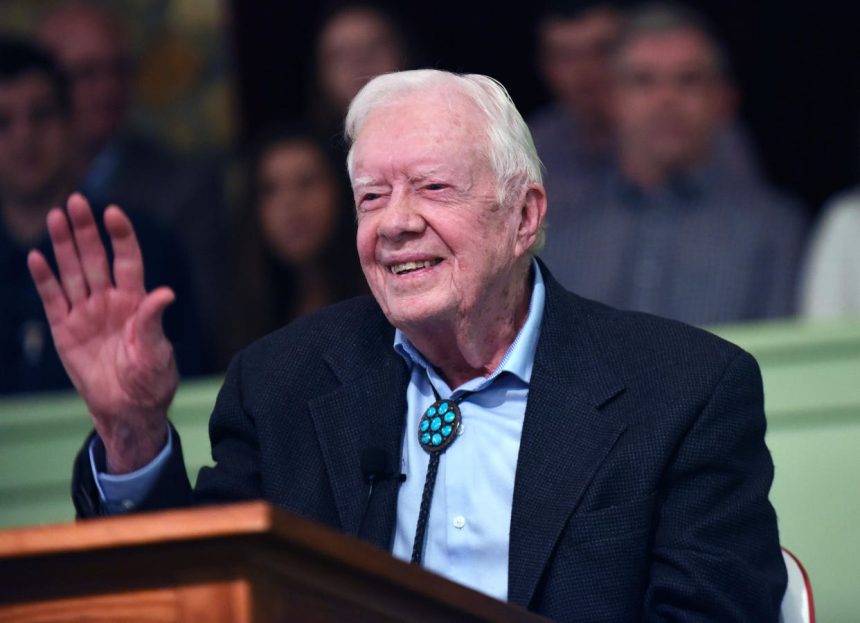Jimmy Carter’s presidency, though a single term, left an indelible mark on American society, particularly in the realm of automotive regulation and environmental policy. While often overshadowed by his post-presidency humanitarian efforts, Carter’s time in office initiated crucial shifts towards a more sustainable and safety-conscious automotive industry, the effects of which continue to resonate today. His forward-thinking approach, though met with resistance at times, laid the groundwork for many of the advancements we see in the automotive landscape today.
One of Carter’s most significant contributions was his focus on a “greener” strategy for the auto industry. Recognizing the nation’s overreliance on foreign oil and its detrimental impact on the economy and environment, Carter established the Department of Energy and implemented a national energy policy that emphasized conservation, price control, and the development of new technologies. This marked a turning point in the national conversation, bringing alternative fuels and renewable energy sources into the spotlight. Carter’s commitment to environmental stewardship was further demonstrated by his strengthening of the Environmental Protection Agency (EPA) and the National Highway Traffic Safety Administration (NHTSA), empowering them to enforce stricter regulations and promote cleaner, more fuel-efficient vehicles. His push for higher Corporate Average Fuel Economy (CAFE) standards, though initially controversial, set the stage for the development and adoption of fuel-saving technologies like hybrid and electric vehicles, contributing to the gradual shift away from fossil fuel dependence.
Furthermore, Carter’s administration prioritized functional safety, recognizing the need to protect consumers from unreasonable risks associated with consumer products, including vehicles. By signing legislation that reaffirmed the authority of the Consumer Product Safety Commission (CPSC), Carter reinforced the importance of product safety standards and oversight. While the CPSC’s jurisdiction over automobiles is a complex issue, often overlapping with that of the NHTSA, Carter’s actions underscored a broader commitment to consumer protection and the principle of functional safety, which continues to influence product design and regulation across various industries, including the automotive sector. This commitment to consumer safety extended beyond just automobiles; it encompassed a wider range of products, ensuring that manufacturers were held accountable for the safety of their goods.
Carter’s vision for a more sustainable and safe automotive future faced significant challenges and criticisms. His push for stricter fuel efficiency standards was met with resistance from some within the auto industry, who argued that such regulations would stifle innovation and limit consumer choice. Similarly, his emphasis on renewable energy sources was viewed by some as unrealistic and economically impractical. Despite these obstacles, Carter remained steadfast in his commitment to environmental protection and consumer safety, laying the foundation for future progress in these areas. His legacy in this regard is not defined by immediate results but rather by the long-term impact of his policies and the shift in perspective he helped to initiate.
The impact of Carter’s policies can be seen in the continued evolution of the automotive industry towards greater sustainability and safety. The development and increasing popularity of electric and hybrid vehicles, the ongoing research into alternative fuels, and the ever-tightening safety regulations are all testaments to the seeds planted during his presidency. While the progress may not have been as rapid or as comprehensive as Carter envisioned, his efforts undeniably contributed to the momentum towards a cleaner, safer, and more sustainable transportation future. His foresight in recognizing the interconnectedness of energy policy, environmental protection, and consumer safety set a precedent for subsequent administrations and continues to shape the discourse surrounding these critical issues.
Beyond specific policies, Carter’s presidency left a lasting legacy of principled leadership and a commitment to addressing complex challenges with courage and conviction. His famous “Crisis of Confidence” speech, though initially perceived as politically damaging, resonated with many Americans who shared his concerns about the nation’s direction. Carter’s call for unity and collective responsibility in addressing the energy crisis and other pressing issues reflected his belief in the power of collective action and the importance of shared sacrifice. While his solutions may not have always been popular, his willingness to tackle difficult issues head-on and his unwavering commitment to the public good earned him respect and admiration, even from his critics.
In conclusion, Jimmy Carter’s presidency, though brief, laid the groundwork for significant advancements in automotive sustainability and safety. His establishment of the Department of Energy, his emphasis on renewable energy sources, his strengthening of regulatory agencies like the EPA and NHTSA, and his unwavering commitment to consumer protection all contributed to a shift towards a more responsible and sustainable automotive industry. While the full realization of his vision continues to unfold, Carter’s legacy as a champion of environmental stewardship and consumer safety remains a testament to his foresight and his unwavering dedication to the betterment of society. His presidency serves as a reminder that even single-term leaders can have a profound and lasting impact, particularly when they prioritize long-term vision over short-term political gains.



